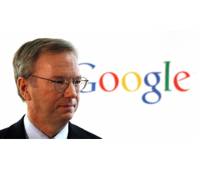| Schmidt and Schwartz Defend Google's Use Of Java APIs |
| Written by Sue Gee | |||
| Thursday, 12 May 2016 | |||
|
At the start of the second Oracle v Google trial, Alphabet CEO Eric Schmidt told the court that in creating Android Google used only what it thought was freely available, including the Java language and its APIs. The opening shot in this rematch to determine whether Google's use of the Java APIs in its Android operating system can be considered fair use was made by Oracle lawyer Peter Bicks. He told the jury: "Three billion mobile phones have been activated with Oracle's property on them... There are 100,000 Android phones being activated each hour... $42 billion in revenue through all of those activations. Each with our client's property in them. Valuable computer code." Bicks went on to make a pre-emptive strike on Google's fair use defence, showing a software map to demonstrate the importance of the API code and its extent. Claiming that Google "took the heart of these packages he told the jury: "You may hear today that 11,000 lines is not a lot 'We left a lot behind,' is what you'll hear. 'We took your property, but we didn't take all of it.' 11,000 lines is a lot of computer code." While a main plank of Bick's case is that Google used the Java APIs without permission, part of Eric Schmit's defence rests on the fact that both the Java language and its APIs were freely available and that Sun didn't object to the way it was used. Asked by Google's own attorney Robert Van Nest as to the basis of his belief that Google didn't need a license to use 37 Java application programming interfaces for which Oracle now owns the copyright, Schmidt replied: “Forty years of experience” indicating that it was common belief in the industry that APIs can be used without a license. This line of the argument was confirmed by Jonathan Schwartz, the former CEO of Sun, the company that created Java before it was acquired by Oracle. Schwartz maintained that Java was free because Sun was attempting to promote it among young and future developers, primarily those who were still attending schools and colleges. He referred to the GNU Classpath project, an open source Java-powered creation that stemmed from this policy and which Sun was subsequently forced to compete with stating that the GNU Classpath developers did not take any kind of license for using Java APIs and his former company obviously did not take them to court over that despite directly competing with them.
Related ArticlesOracle v Google - Second Trial Starts Today Google Changes Course For Android N Supreme Court Refuses To Reconsider API Copyright Decision White House Advises That APIs ARE Copyrightable Supreme Court Seeks Guidance On API Copyright Issue Computer Scientists Petition Supreme Court Over API Copyright Android Copyright Battle Goes To Supreme Court Judge Rules Oracle's Java APIs Not Copyrightable Oracle v Google Judge Is A Programmer! Oracle v Google - Are Computer Languages Copyrightable?
To be informed about new articles on I Programmer, sign up for our weekly newsletter, subscribe to the RSS feed and follow us on Twitter, Facebook, Google+ or Linkedin.
Comments
or email your comment to: comments@i-programmer.info |
|||
| Last Updated ( Thursday, 12 May 2016 ) |


